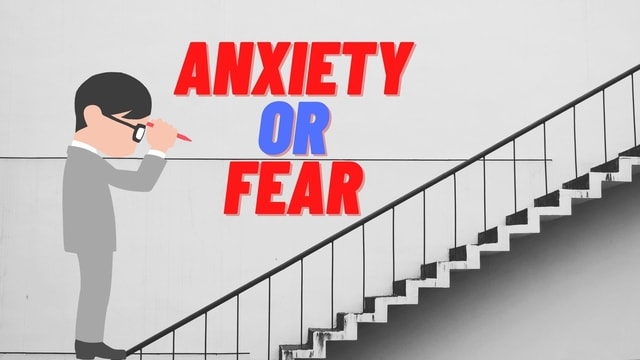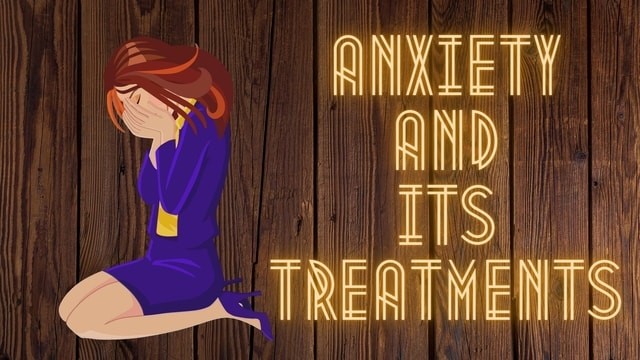If you are wondering if is anxiety real or just an excuse then let me tell you, yes, anxiety is real. Are you worried about things all the time, what will happen next or in the future? Are these negative thoughts hampering your sleep time, and your day-to-day activities? If yes then in that case there are chances that you are suffering from Anxiety Disorder. In this blog, we will discuss whether is anxiety real or just an excuse.
Table of Contents
is anxiety real or just an excuse?
According to a 2007 research conducted it was found that 54% of males complained of anxiety about workplace anxiety while 71% of females made the same complaints about their workplace anxieties.
(M Linden, B Muschalla – Journal of anxiety disorders, 2007 – Elsevier)

How to know if it’s fear or anxiety?
Fear is a known, external, and definite threat whereas anxiety means an unknown, internal, and vague threat.
What is Anxiety?
Anxiety is an alerting signal that makes you take action. It is, therefore, nothing but excessive worry or fear about any defined or undefined future threat. Thus it is an unpleasant emotional state causing discomfort or uneasiness. Some degree of worry is faced by everyone in life but when it starts interfering with routine activities then it becomes an anxiety disorder and thus needs treatment. It is a stress-related disorder.
What Causes Anxiety?
Anxiety is a feeling of fear or worry that is so intense, it can interfere with daily life. The hallmark of anxiety is persistent and intense worry about everyday things. Genetic predisposition, environmental factors, and personal experiences are three major causes of anxiety disorders.
Major signs and symptoms are:
-Restlessness
-Increased heart rate
-Dilated pupil
-Breathing rapidly
-Sweating
-Trembling
-Feeling tired
-Having trouble sleeping
-Difficulty in controlling worry
-Increased frequency of urination
-Gastrointestinal problems
-Cold clammy skin
Anxiety Disorders :
While there is no specific definition of an anxiety disorder, it is characterized by excessive worry and/or tension that disrupts someone’s daily life. As a group, it is the most common psychiatric disorder. Individually, specific phobias are the most common.
1. Panic disorder
In panic disorders, there are frequent and unexpected panic attacks.
What is a Panic Attack?
Attack of intense anxiety characterized by ‘ a feeling of impending doom. Often accompanied by chest pains, dizziness, and increased heart rate, so much so that the person fears having a heart attack, dying, or going mad.
2. Agoraphobia
It is the fear of places from which escape might be difficult.
-Having a fear of crowded spaces
-Terrified of enclosed spaces
-Frightened about traveling alone
-Dreading traveling through public transport
3. Specific Phobias
It is nothing but a strong, persistent, and irrational fear of an object or a situation.
Types
First is the animal type
Second is the natural environment type for example storms, and water.
The third is the blood injection – an injury type for example invasive medical procedure.
Last is the situational types for example-lifts, planes.
4. Social Anxiety Disorder
It is a synonym for Social phobia. It is the fear of embarrassment in social situations.
5. Generalized Anxiety Disorder
It can be defined as having excessive unrealistic worries.
how long does it take for anxiety to go away?
Anxiety is a common occurrence and it usually gets over after the triggering event is over. But you may face periods of intense anxiety that can range from weeks to months depending on your condition. If you have an anxiety disorder, it can become a condition that will last longer.
How to Stop feeling Anxious?
When you’re feeling anxious, it can seem as though your mind is racing and the only thing you want to do is curl up in a ball and never come out. But this isn’t an effective way to calm down – rather, we want to mentally engage with ourselves and force ourselves to focus on our breathing. When we feel anxious, we take short and shallow breaths which causes us to panic even more. When you are having an anxious episode, it is important to remember that the feeling will pass. Try to focus on what you are feeling in your body and remind yourself that if it feels bad now, it will feel better soon.
What are treatments for Anxiety?
Generally, a Central Nervous System depressant is prescribed. It is very necessary to consult your psychiatrist, before taking any medicines. Do not try them by yourselves.
Medications
▪ benzodiazepines- Drugs used in the anxiety disorder treatment are:
Example
Chlordiazepoxide
Diazepam
Oxazepam
Lorazepam
Alprazolam
Buspirone
▪ Antidepressants such as Selective Serotonin Reuptake Inhibitors and Serotonin Norepinephrine Reuptake Inhibitors are sometimes prescribed.
Example of Selective Serotonin Reuptake Inhibitors -Fluoxetine, Escitalopram
Serotonin Norepinephrine Reuptake Inhibitors-Duloxetine, Venlafaxine
▪ Beta-blockers – These help with the physical symptoms of panic attacks especially a racing heart etc.
Other treatments
-Psychotherapy or talk therapy, in which a trained professional hears out your problems and suggests certain ways by which you can overcome them.
-Cognitive-behavioral techniques teach how negative situations, and thoughts can be turned into positive ones.
How to stop feeling anxious with the help of Psychotherapy and Psychopharmacology
Psychotherapy is a common type of treatment for anxiety. As I mentioned above it involves one session per week where you speak with your therapist about your thoughts and feelings. Psychotherapy can be very helpful because it helps you explore your thoughts and offers coping skills. Most people prefer to use psychotherapy along with medication in order to get the most benefits.
Alternatives to Psychopharmacology and Psychotherapy
There are a variety of approaches, including meditation, breathing exercises, and taking supplements. In addition to these natural methods, it is important to be more mindful of avoiding things that trigger your anxiety.
Management
- Take your treatment plan seriously.
- Remove all the caffeinated drinks in your daily diet.
- Stop using recreational street drugs and alcohol.
- Work out daily.
- Sleeping time should be at least 7 hours.
- Talk to friends and take your family’s support
- Listen to soothing music.
- Start writing your daily routine, it helps minimize stress.
Conclusion
How much can you use anxiety as an excuse? It’s about time you should learn to manage it by seeking professional help. It is very beneficial for someone suffering from anxiety to understand the reason behind their feelings.
Reference :
| Linden, M. and Muschalla, B., 2007. Anxiety disorders and workplace-related anxieties. Journal of anxiety disorders, 21(3), pp.467-474. |
| Vancouver |
Disclaimer
The content of this article has been developed by third-party medical content writers and/or experts. The information mentioned in the article is only for educational purposes and therefore it is requested to consult a doctor/ physician before diagnosing and deciding the treatment plan.
Healthoplane, its Licensors nor any third-party content providers do not guarantee the accuracy, completeness, or usefulness of any content. Furthermore, neither Healthoplane nor its Licensors endorse or are responsible for the accuracy and reliability of any opinion, advice, or statement made on this article or any of the Sites or Services. We take no responsibility for your exposure to third-party content on the Sites or the Services. Healthoplane and its Licensors do not assume, and expressly disclaim, any obligation to obtain and include any information other than that provided to it by its third-party sources. It should be understood that we do not advocate the use of any product or procedure described in the Sites or through the Services, nor are we responsible for misuse of a product or procedure due to typographical error.
Consent
By using our website, you hereby consent to our disclaimer and agree to its terms.
Dr Amit Sharma is a Doctor and writer with a particular interest in mental health. He helps individuals by combining practical advice with emotional support.
